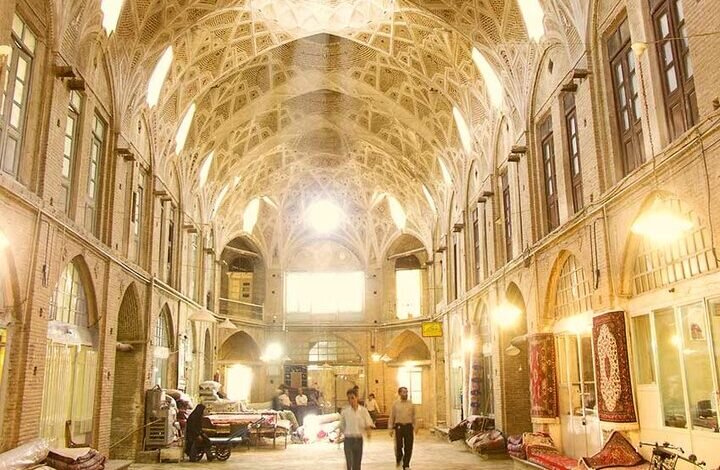Multi-sided agreement signed for Arak’s historical bazaar restoration

TEHRAN - A multi-sided agreement to map out a comprehensive restoration and revitalization of Arak’s historical bazaar was signed on Monday.
The agreement has been reached by the provincial government, Arak Governorship, Arak Municipality, the City Council, the Provincial Office of Endowments and Charity Affairs, the Provincial Department of Cultural Heritage and Tourism, and the board of trustees and benefactors of the historical bazaar.
Farzad Mokhles -al- Aemeh, the Governor of Markazi province and one of the signatories of the agreement, emphasized the importance of reviving the symbolic and heritage sites in the region. He highlighted the historical bazaar of Arak as a premier example of traditional bazaars and a significant identity marker for the city and the province.
“This bazaar is not just a collection of structures made of bricks, stones, and wood, but it holds a spiritual essence that forms its identity.”
The governor also pointed out that the restoration of Arak’s historical bazaar had been neglected for many years. “Today marks a historic day for Arak’s historical bazaar,” he said.
“This extent of collaboration being formed between various provincial organizations in this regard is unprecedented.”
The agreement outlines a shared commitment to protect, restore, and revive the bazaar, ensuring it remains a vital part of Arak’s cultural and historical heritage.
The historical bazaar of Arak is renowned for its unique architectural design and cultural significance. It has been a central hub for commerce and social interaction, reflecting the rich history and traditions of the region. The planned restorations will not only preserve the physical structure of the bazaar but also aim to rejuvenate its cultural and economic vitality, ensuring it continues to serve as a cornerstone of Arak’s identity.
In Iranian culture, bazaars have been traditional public spaces in Iranian cities with great contributions to commercial activities in urban life. Meanwhile, their extended activities can be traced to social, cultural, political, and religious roles.
AM
Leave a Comment